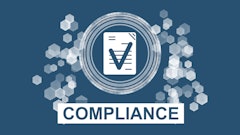Shock waves from the implosion on Wall Street have spread to Main Street, and the economy is now in a recession. The fallout for suppliers of goods and services will very likely be an upsurge in customer bankruptcies.
Customers' bankruptcies don't necessarily mean a total loss of receivables due from those customers. Suppliers can avoid, or at least minimize, such losses by using a wide array of tools to obtain payments from insolvent or bankrupt customers and keep those payments if a bankruptcy trustee demands their return. Here is a summary of strategies and tactics that can help.
Sellers' Remedies When Customers Become Insolvent or File for Bankruptcy
A person is insolvent when he is not paying his debts as they mature or when his liabilities exceed his assets at a fair valuation. The Uniform Commercial Code (UCC), enacted in all states, provides a variety of remedies to suppliers who discover or suspect that a customer has become insolvent. Knowing when and how to rely on these remedies is crucial.
1. Refuse delivery unless payment is in cash. First, upon discovering that a customer is insolvent, a seller has the right to refuse to deliver goods unless the customer agrees to pay for the goods – and possibly for all goods previously delivered – in cash. This right covers not only goods for which the title has already passed to the buyer, but also goods in the possession of a bailee (such as a warehouse) that has not yet acknowledged the buyer's ownership of the goods.
2. Stop goods in-transit. Discovery of a customer's insolvency also gives the seller the right to stop delivery of any goods in the possession of a carrier or other bailee. However, the seller must exercise this right before one of the following occurs: (1) the buyer receives the goods; (2) a bailee of the goods (other than a carrier) acknowledges that the bailee holds the goods for the buyer; (3) a carrier acknowledges that it holds the goods for the buyer (by reshipping the goods or by entering into a separate contract with the buyer to act as a warehouse); or (4) any negotiable document of title covering the goods is negotiated to the buyer. For the purposes of exercising the right to stop delivery, the term "buyer" includes any designated representative of the buyer or any entity to which the carrier has been directed to drop ship the goods.
3. Reclamation. In some circumstances, a seller may have the right to reclaim goods already delivered to a buyer. This right arises when the seller discovers that the buyer has received goods on credit while insolvent, and it permits the seller to demand return of those goods within 10 days after the buyer's receipt of them. The 10-day period does not apply if the buyer has made a written misrepresentation of its solvency within three months prior to delivery of the goods.
Reclamation demands should be made as soon as possible after a supplier learns of a customer's insolvency; if the buyer commingles fungible goods or sells the goods, the seller's right of reclamation will be lost.
4. Adequate assurance of future performance. While it is not necessarily a right triggered by discovery of a buyer's insolvency, a buyer's right to demand adequate assurance of due performance from a customer is still a powerful weapon in the seller's arsenal.
Under Section 2-609 of the UCC, once either party to a contract has reasonable grounds for insecurity with respect to the other party's performance, the insecure party may demand in writing adequate assurance of due performance from the other party. Until it has received the requested assurance, the requesting party may, if commercially reasonable, suspend any further performance as long as it has not already received the agreed-upon return performance.
5. Recoupment and setoff. Suppliers often purchase goods from their own customers, thereby creating "contras." If the supplier owes a customer money for such goods while simultaneously holding a receivable from the customer, the supplier will have either a right of recoupment or a right to set off its payable against its receivable.
"Recoupment" refers to the supplier's right to set off mutual obligations arising from a single agreement with the customer. A right of setoff exists when the mutual obligations arise from independent agreements. However, pre-petition setoffs can sometimes be avoided by a bankruptcy trustee. Consequently, a supplier should consult counsel before exercising its right of setoff.
Getting Paid After a Customer Files for Bankruptcy
Once a customer seeks protection under the federal bankruptcy code (the "Code") by filing a bankruptcy petition, a supplier must consider how to maximize recovery of its pre-petition claim.
1. Immediate actions. A supplier that learns of a customer's bankruptcy should immediately exercise its right to stop any goods in-transit before title passes to the debtor. The supplier should also send the customer a reclamation demand that includes a demand that the debtor segregate and hold goods delivered by the supplier. Under the Code, a supplier can make a written demand for the return of any goods sold to the debtor in the ordinary course of the supplier's business, so long as the debtor received the goods while insolvent within 45 days before the bankruptcy filing. If that 45-day period expires post-petition, the supplier can make its reclamation demand not later than 20 days after commencement of the bankruptcy case. However, reclamation rights under the Code are subject to the rights of a creditor with a security interest in the goods or their proceeds.
If a supplier does not have a right of reclamation or if that right is trumped by a secured creditor's lien, the supplier may have one of four additional means of collecting its pre-petition debt.
2. Critical vendors. Many courts permit Chapter 11 debtors to pay the pre-petition claims of "critical vendors" at the beginning of a case. The definition of a "critical vendor" varies from case to case. It can be narrow, such as a sole supplier of goods without which the debtor cannot produce a product, or broad, such as any creditor with which the debtor would simply like to continue doing business.
However, achieving critical-vendor status typically comes at a price. In return for payment of its pre-petition debt, the critical vendor is usually required to provide trade credit to the debtor on terms no less favorable than the terms that were available pre-petition. Suppliers should consult counsel to determine whether critical vendor payments are available or advisable in a particular case.
3. Requesting assumption of executory contracts. If a supplier was providing goods or services to a debtor pursuant to an executory contract (a contract under which material performance is still due from each party) and is concerned about the debtor's ability to perform, the supplier can request a court order compelling the debtor to assume that contract. One of the requirements for a debtor's assumption of an executory contract is that the debtor cure any pre-petition defaults, i.e., pay any amounts due to the non-debtor party on the bankruptcy filing date. Unfortunately, bankruptcy courts are reluctant to compel assumption of executory contracts.
4. Adequate protection for secured claims. If a supplier obtained purchase money or other security interest in the debtor's goods, the supplier would be entitled to adequate protection for its security interest in those goods, i.e., compensation for value lost because of the debtor's use of the goods. The supplier's lien would also attach to the proceeds from any sale of the goods.
5. Administrative claim for goods shipped within 20 days of petition. The Code also gives suppliers an administrative claim for the value of any goods received by the debtor within 20 days prior to the petition date, so long as the goods were sold in the ordinary course of the debtor's business. Administrative claims have special value, because they have priority over pre-petition unsecured claims and must be paid in full, in cash, upon confirmation of a plan of reorganization. However, administrative claims are still unsecured claims, which means they are subordinate to pre- and post-petition secured claims. If the debtor's assets are worth less than the secured claims, there will be no money available to pay administrative claims.
Conclusion
These are tumultuous times, and suppliers face increased risks and uncertainties. When a customer becomes insolvent, the supplier may not be paid.
However, suppliers do have tools and strategies available to enhance their prospects for getting payments from insolvent customers if any customers file for bankruptcy. Getting maximum benefit from the available remedies requires careful planning, consultation with experienced counsel and prompt action.
About the Authors: Rick Bendix and Sheryl Toby are both attorneys and co-chairs of Dykema's Bankruptcy & Restructuring practice. Dykema serves a wide spectrum of national and multinational corporate clients and offers a wide variety of legal services. More information can be found at www.dykema.com.


























